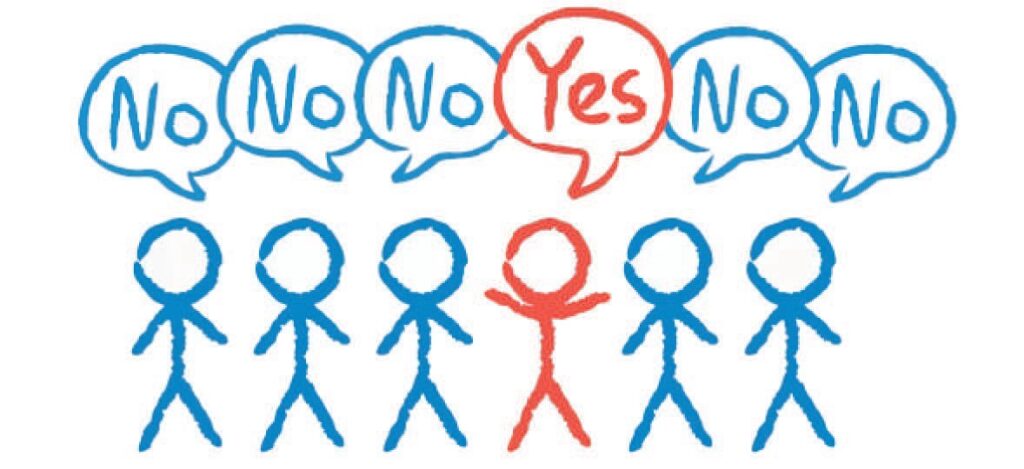Recently I´ve been thinking a lot about the principles “Agree and commit, disagree and commit, or get out of the way.” They emphasize the importance of alignment and action within a team. In a nutshell, it means that regardless of whether one agrees or disagrees with a decision, once a course of action is chosen, full commitment is essential for progress. This mindset fosters a culture of accountability and forward momentum. It ensures that everyone is actively contributing to the team’s goals rather than obstructing them.
To live specifically by the “disagree and commit” principle, individuals must actively engage in decision-making processes and commit wholeheartedly to agreed-upon courses of action, even if they initially disagreed. This entails setting aside personal preferences or reservations for the collective good of the team or organization. Conversely, it is detrimental to undermine decisions through passive-aggressive behavior or lack of commitment, which can hinder progress and erode trust within the team. Instead, fostering open communication channels and a culture of respect ensures that everyone’s perspectives are valued while maintaining forward momentum towards shared goals.
If unable or unwilling to commit, individuals should communicate their concerns or reservations transparently and constructively, offering alternative perspectives or solutions that align more closely with their values or objectives. If necessary, they should gracefully step aside from the decision-making process to allow those who can commit to move forward decisively.
If a “disagree and commit” decision were not successful in the end, individuals should not resort to blame or finger-pointing. Instead, they should reflect on the decision-making process, learn from any missteps, and collectively pivot towards a new direction with renewed determination. This fosters resilience and adaptability within the team. In consequence, and if practiced correctly, setbacks become opportunities for growth rather than sources of discord.
The ability to adhere to the principles of “agree and commit, disagree and commit, or get out of the way” separates great companies from good companies and high-performance teams from average teams. Great companies and top teams embrace this mindset, enabling them to make bold decisions, adapt quickly to change, and collectively pursue excellence with unwavering commitment.
In today’s world, where the pursuit of harmony and consensus often trumps the confrontation of conflict or difficult decisions, specifically the “disagree and commit” principle holds heightened significance. Amidst a culture that favors superficial agreement over genuine progress, it encourages individuals to voice dissenting opinions constructively and then rally behind collective decisions, even if not universally embraced.
By doing so, organizations foster a culture of robust debate, informed decision-making, and collective accountability, essential for navigating complex challenges and driving meaningful change in an increasingly interconnected and dynamic global landscape.
Do you agree, disagree, and most importantly, are you fully committed?
Wishing you a successful and fulfilled week.
Kind regards,
Andreas von der Heydt
#disagree #agree #commitment #decisionmaking #forward #success #leader #leadership

